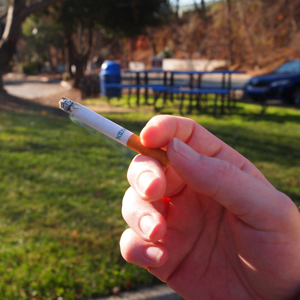
According to researchers at Duke University, children who grew up in poverty are more likely to become cigarette smokers as adults — but at the same time, they may also be less likely to engage in binge drinking.
The study, funded by the National Institutes of Health (NIH), the National Cancer Institute (NCI), and the National Institute on Drug Abuse (NIDA), was published last month in the Journal of Pediatric Psychology.
“Poverty during childhood not only appears to affect child development, but can have lasting effects on the types of health choices made during early adulthood, especially as it relates to cigarette smoking,” said Dr. Bernard Fuemmeler, an associate professor at the Duke University School of Medicine, in a recent press release. “Economic strains may shape an individual’s capacity for self-control by diminishing opportunities for self-regulation, or affecting important brain structures.”
The study assessed data from nearly 1,300 children and their caregivers, with researchers measuring numerous economic factors, such as annual income, alongside information about the children’s self control and interaction with their parents.
The results of the assessment revealed that subjects who grew up in poorer households were more likely to become habitual tobacco users when they were older, while binge drinking was much more common among adults who grew up in wealthier environments as children.
Socioeconomic status was found to have little impact on the likelihood of whether a subject would use marijuana, although researchers did find that children who grew up with parents who were “nurturing and accepting” tended to be less likely to use alcohol, tobacco or cannabis. Contradicting previous research, the authors of the study said there was no link between poor parenting and economic hardships.
“That means it’s not necessarily poverty that affects the parenting strategy,” Fummeler stated, “but poverty that affects the children’s self-control.”
Photo credit: Fried Dough / Flickr (license)
























